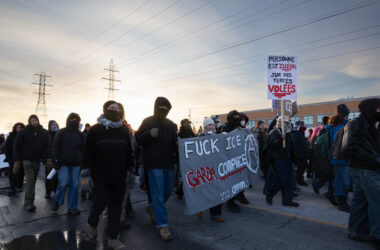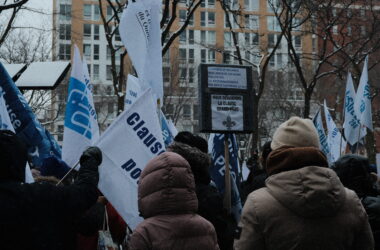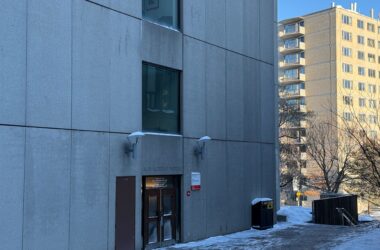With its alternative cafés, restaurants, and thrift stores, the Plateau neighbourhood might appear to be a flourishing area for anyone who grew up outside of Montreal. However, in reality, the online short-term renting platform Airbnb has caused long-standing residents to be evicted, housing market prices to rise, and small businesses to close. As a result, two housing committees of the Plateau-Mont Royal and Ville Marie areas are calling for a ban on the platform in Montreal.
The platform has enabled an increasing number of buildings to be turned into makeshift hotels with year-round listings. According to the Urban Politics and Governance (UPGo) research group at McGill, 69 per cent of the listings in the Plateau alone are entire homes rather than private rooms.
In Dec. 2015, the Quebec government passed Bill 67 to regulate tourist accommodations across Quebec and ensure adherence to Quebec tax laws. Later, on July 21, 2017, Revenu Québec and Airbnb came to an agreement that Airbnb subletters would pay Revenu Québec a housing tax of 3.5 per cent per night rented. Last year, Bill 150 was passed on June 12, 2018 to regulate companies trying to make a profit off of Airbnb.
“[Under Bill 150], Revenu Québec is [now] responsible [for] the new inspection program in the sector of tourist accommodation in order to oversee the compliance with tax laws and regulations by operators,” Revenu Québec Public Relations spokesperson Geneviève Laurier wrote in an email to //The McGill Tribune//. “Following these changes, Revenu Québec has deployed a team of 25 people to carry out information and awareness programs across the Quebec province.”
To make it easier to distinguish long-term, commercial listings from short-term rentals, UPGo, which is working with the Plateau-Mont Royal Housing Committee to find solutions, has called for Airbnb to make its data on users and rentals available to the Quebec government. Airbnb continues to be reluctant to cooperate.
On Mar. 16, the committee held an Airbnb forum at which residents of the Plateau-Mont Royal area could express their dissatisfaction with the online platform. Odile Lanctôt, vice-president of the committee’s administrative council, shared the committee’s latest study on the impact of Airbnb in Quebec.
“It is the idea of privatizing the urban space, encouraged by Airbnb, which jeopardizes the community life of central neighborhoods,” Lanctôt said. “It leads to the homogenization of these areas […] and to the commodification through tourism of cultural, social life […], [limiting] the access of the lower-income neighborhoods to […] urban life.”
Robert, a tenant who requested anonymity, described the disruptive experience of having neighbours replaced by rentable apartments to the rest of the forum.
“I have lived in the same apartment in the Plateau for around 20 years now,” Robert said. “Since this new company has bought the building […], each time a tenant moves out, the next day the landlord takes over the unit, installs a keypad […] and completely renovates the unit. […] So, out of the eight apartments [in my building], we are currently only two tenants […], the rest being Airbnb.”
Robert misses the sense of community he used to share with his neighbours.
“I have lost a lot of quality of life,” Robert said. “I don’t know how long I am going to be able to live here for because, eventually, all [my landlord] wants is for me to leave [….] But, I love my apartment, I love where I live.”
Vicky Langevin, a community organizer of the committee, recognizes that banning Airbnb may impact tenants who welcome the platform’s practical nature, such as students. Ultimately, though, she believes that a ban is justified as a means to prevent larger companies from acquiring and renting out apartment space.
“We understand that [this ban] can have a negative impact on some individuals, but, unfortunately […], the majority [of Airbnb rentals are from companies],” Langevin said. “We are not at all against people renting out their unit while they are away […], but, through Airbnb, [the situation] has [gotten] out of control.”









